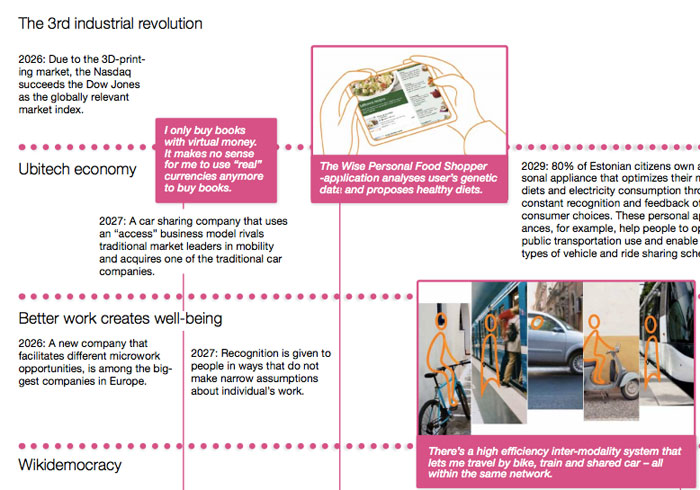

Viewpoints
Viewpoints is a blog in which different writers express their views and opinions on current topics. A new blog post is published about once every four weeks.
You can propose texts by e-mail to viestinta@kesko.fi. The maximum text length is 2,000 characters.
Behaviour change – the untapped opportunity for consumer business
A research conducted by the British communications agency Futerra found that 80 per cent of business leaders expect sustainable lifestyles to be key drivers of business growth over the next few years. The demand for different products and services which change behaviour is growing rapidly. More than fifty leaders of global consumer market businesses were interviewed in the research.

One of the research authors compares the current change in consumer business to the gold rush in America at the turn of the 20th century. In the long term, the biggest financial benefits were not gained by the gold miners but people like Levi Strauss, who was quick to realise the significant and sustained need for a new consumer product – in this case, work trousers.
The result of Futerra’s research opens a new perspective on sustainable business operations. Over the last decades, sustainability has mainly referred to the fast growing cleantech market and innovations improving energy and resource efficiencies. Related investments have produced anything from A++ energy rated household appliances to hybrid cars and contracts for the supply of solar or wind generated power.
The problem is not demand but supply
Despite undeniable achievements, technical energy efficiency improvements have not helped slow down climate change or make lifestyles more sustainable. The latest research evidence on climate warming can be found in the Fifth Assessment Report (AR5) of the Intergovernmental Panel on Climate Change (IPCC) published last week (click here for the summary). It contains harsh facts about the progress of climate change and its impacts on ocean warming, for example, which is taking place considerably more rapidly than estimated. The third part of the assessment report to be published next year will discuss means towards changing the course. For the first time, these means include behaviour change – in other words, a shift towards more sustainable lifestyles.
In this context, behaviour change refers to making sustainable lifestyle choices easy and attractive to people with the help of new products and services. At least a lack of demand is not a barrier to the emergence of such markets. This view, shared by the business leaders interviewed by Futerra, is supported by numerous value and attitude surveys according to which people in the western world, especially Finns, are concerned about the state of the environment and the impacts of their personal choices on it.
The problem is not demand but supply. Today, the most environmentally friendly products are tailored to customers who prioritise the ecological aspects of products and services above all others. These so-called econiche consumers represent no more than one tenth of all market potential.
Who are the future Levi Strausses?
Last year, Demos Helsinki developed four scenarios presenting pathways for reaching the other customer segments as part of the European social platform project SPREAD Sustainable Lifestyles. The project participants consisted of a wide variety of businesses (incl. Ikea and Henkel) as well as well-known European research institutes.

Perhaps the most interesting scenario for the trading sector is the one which describes sustainable lifestyles in a society where technology and global networks enable a more varied use of citizens’ competencies. Various platforms enabling co-creation coupled with sharing services become more common and increase the number of service providers like Airbnb, doing business by leveraging underutilised resources. There is an abundance of such companies and depending on the situation, customers may become service providers and vice versa. A rich service economy enables the adoption of sustainable lifestyles with, for example, more flexible transfer from one location to another without a car, it opens up the market for peer-to-peer transportation and makes goods lending easy.
In the Gold Rush days of America, the biggest winners were not gold miners but those who knew how to offer services to meet the needs in changing circumstances. The Levi Strausses of the future may be businesses which identify network possibilities in leveraging consumer competencies in different ways from product development to distribution. These companies will learn how to generate added value through different sustainable products and services to people most of whom are not yet reached by the market.
The writer Maria Ritola is a researcher with years of experience in the development of business models emerging from megatrends with consumer market companies. Ritola is Leader of Sustainable Economy at Demos Helsinki.